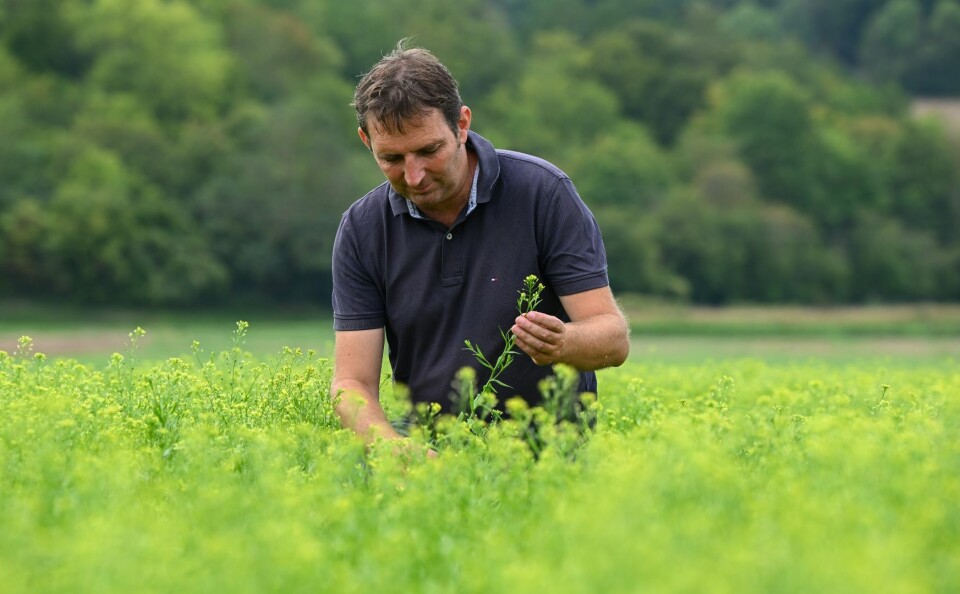-
More communes in France distribute Asian hornet traps
Residents are increasingly receiving help, with now the best time to capture the queens
-
New farmer protests this week - where and what to expect
Pressure mounts on the government over agricultural policy, disease control and trade agreements
-
French farmers begin major protest in Strasbourg
More than 700 tractors expected to park outside EU Parliament in two-day protest
Trial to grow oilseed for green aviation fuel on French farm
The camelina crop was used in cosmetics but could be used to power planes if tests are successful

A farmer is trialling a crop that he hopes will play a significant role in the development of sustainable aviation fuel.
The Normandy test is being run in collaboration with the French Civil Aviation Authority and Avril, a pioneer in biofuels in Europe.
‘This is what being a farmer is all about’
Fifth-generation farmer Fabrice Moulard planted camelina in two three-hectare plots in Eure in a small-scale first trial this summer.
The aim is for the crop, which is used in cosmetics but has fallen out of favour to higher yielding alternatives, to provide a feedstock for production of greener aviation fuel.
He told The Connexion: “The technology and production units for sustainable biofuels already exist but the availability of sustainable biomass to ‘feed’ it is a major challenge.
“When my father planted three hectares of rapeseed, it was a revolution. Today, it is a central crop in the landscape.
“The decarbonisation of air transport using oilseed intermediate crops might be the next revolution. It could enable the production of sustainable aviation fuel capable of cutting CO2 emissions by up to 80% over an aircraft’s lifecycle.
“It is important to encourage it by testing new sustainable approaches. That’s what being a farmer is all about.
“I’m proud to share this commitment to preparing for the future with my daughter, Marie, an aspiring farmer who planted the trial plot.”
Read more: French firm masters flying planes with sugar beet fuel in engines
Camelina is planted in rotation
Camelina, like rapeseed, is rich in oil and protein.
It is an intermediate crop – one that is planted and harvested between two main crops as part of the agricultural rotation – so it does not need extra land, making it ideal for the trial.
It is too early to say what added value planting camelina could bring to farmers, but Mr Moulard, who is also director of the Fédération des Producteurs d’Oléagineux et Protéagineux, is optimistic.
“The agricultural sector has made a fundamental contribution to the decarbonisation of road transport in recent years.
“Similarly, developing oilseed intermediate crops such as camelina could not only provide an extra outlet for farmers – and thus an additional source of income – but also a useful crop that would benefit the soil and the environment.
“It could be an asset for France and Europe in terms of energy sovereignty, particularly at a time when the market for sustainable aviation fuels is in the process of forming.”
Related articles
Algae farm windows help French flats go green
Why peanuts and pistachios are the future of French farming
Lavender crops destroyed overnight by caterpillars in south of France
























